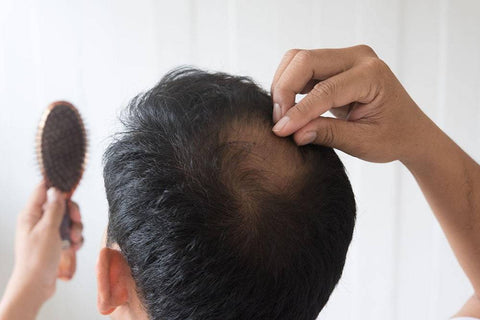Will MTHFR Cause Hair Loss?
Hair loss is a distressing condition that affects millions of people worldwide. It can severely affect one’s confidence and self-esteem, and many people spend thousands of dollars searching for a solution.
The most common form of hair loss is male androgenetic alopecia (MAA), affecting 30-50% of men by age 501. In women, the prevalence of hair loss increases with age, from around 12% amongst women aged 20- 29 years to over 50% in women aged 80+2.
The etiology of hair loss has been linked to a wide range of factors, from genes to psychological distress. More recently, however, the MTHFR gene has been highlighted as a possible cause.
It’s thought that around 60% of the US population3 have some form of the genetic polymorphism of the MTHFR enzyme, while up to 25% of certain populations are homozygous for variations of the MTHFR gene. A mutation in the MTHFR gene will compromise the function of the MTHFR enzyme by around 40-70%4, which has varying downstream effects on the body’s methylation processes.
Although there is limited research on the association between MTHFR and hair loss, there is some evidence that it may lead to the autoimmune condition alopecia. Researchers have also highlighted the role that folate plays in hair growth.
Approximately 25% of the global population5 are carriers of C667T mutation, while about 25% of the global population have the 1298AC variant. Identifying this genetic alteration may provide insight into many health conditions, including those related to hair loss.
This article will discuss why the MTHFR gene is important to hair health and the potential links between MTHFR and hair loss. We will also discuss how to treat hair loss linked to an MTHFR polymorphism.












